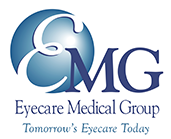
March is Workplace Eye Wellness Month. This is observed by the American Academy of Ophthalmology.
No matter what your job, it’s important to keep an eye on your eye health along with your general health. You may not think of your vision as something to care for, but there’s a lot that can happen in the workplace that can hurt your eyes.
Being aware of these hazards and how to prevent them is the goal of this month. To help you get started, here are the basics:
Workplace Eye Hazards
Eye hazards can come in a variety of forms depending on your occupation. Some of the fields with the most hazards include construction, athletics, and anything involving handling chemicals.
These jobs come with an assumed amount of physical risk. For this reason, they’re often heavily regulated.
That means there’s a good amount of safety training before you start the job. Remember to refresh yourself on your safety training every once in a while, especially if you’ve been working the same job for a while.
Always wear recommended safety equipment, and familiarize yourself with the protocol for emergencies. If you work with chemicals, for example, that may mean making sure you know where the emergency eye washing stations are.
Even if you work in a regular office, you still need to be aware of a huge hazard to your vision. It’s not harmful chemicals or loose construction material. No, it’s the computer screen you use every day.
Computer Vision Syndrome
Computer Vision Syndrome, or CVS, is a common condition amongst office workers. These days, most offices operate almost entirely on computers.
Most employees spending most of their workday on the computer. But too much exposure to a screen can be harmful to the eyes.
Computer screens emit blue light, which is on the light spectrum right next to UV light. UV light is the harmful sunlight that causes sunburns and cancer. Blue light isn’t as damaging as UV light, but over-exposure can cause CVS.
CVS has many symptoms including headaches, dry eyes, fatigue, and general eye discomfort. These symptoms can make it harder to work, and harder to see your screen, only compounding the issue.
Knowing when you’re starting to develop CVS can help you treat it before it gets worse and prevent it in the future.
Tips for Workers
No matter where you work, you should always follow standard safety rules and use recommended safety equipment. For office workers, the workplace doesn’t usually have recommendations or regulations on computer use. If this is the case, you should monitor yourself.
That doesn’t need to mean not working, either. Be sure to sit at least an arm’s distance from the computer and take regular breaks.
Follow the 20-20-20 rule: every 20 minutes, take a quick break to look at an object 20 feet away for 20 seconds. This is an easy way to give your eyes the small rest they need.
If you develop CVS symptoms, be sure to see your eye doctor. Even if you aren’t experiencing any health issues with your eyes, have regular eye exams. Maintaining your eye health is a great way to make sure they stay healthy while you work.
Concerned about your eyes? Schedule an appointment at Eyecare Medical Group in Portland, ME, now!





